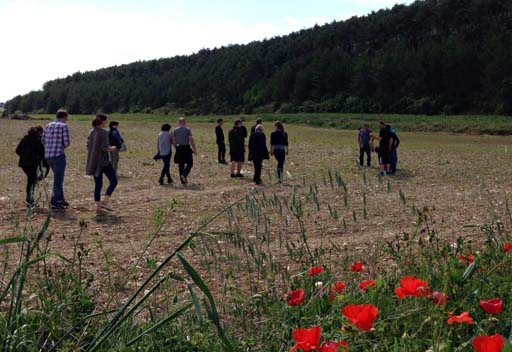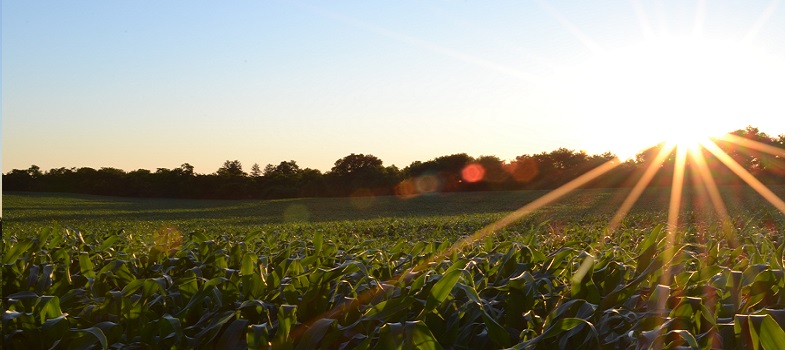Summary of Session 2
This session has looked at how researchers and policy makers have framed their conceptions of agricultural knowledge and agricultural innovations in relation to all the actors involved in a system and with respect to the competing demands being placed upon farmers and others to make agriculture more sustainable.
In particular, it has noted the structural imbalances in whose knowledge is used to underpin advisory services and the improvement of existing or creation of new services and innovations. This focus on theory may feel irrelevant but it is the process by which knowledge, understanding, concepts and theories are enacted, embodied or realised that is an important part of professional development both individually and collectively.
The braiding of thinking and practice has been central to our work on Living Labs and so it is important that you understand and practise this yourself as we move on to looking at what we did.

References for Session 2
Bogers, M. and West, J. (2012) ‘Managing Distributed Innovation: Strategic Utilization of Open and User Innovation’, Creativity and Innovation Management, 21 (1): 61-75.
Brown, J. S. and Duguid, P. (2001) ‘Knowledge and Organization: A Social-Practice Perspective’, Organization Science, 12 (2): 198-213.
Dockès, A-C., Tisenkopfs, T., and Bock, B. (2011) ‘Agricultural knowledge and innovation systems in transition – a reflection paper’, Standing Committee on Agricultural Research (SCAR) Collaborative Working Group AKIS. European Commission, Brussels.
EU SCAR (2012) Agricultural knowledge and innovation systems in transition – a reflection paper, Brussels. Available at: http://ec.europa.eu/research/agriculture/scar/pdf/akis_web.pdf (Accessed: 9 February 2021).
Faizey, J. et al. (2012) ‘Knowledge exchange: a review and research agenda for environmental management’, Environmental Conservation, 40 (1): 19-36.
Garforth, C., Angell, B., Archer, J., and Green, K. (2003) ‘Fragmentation or creative diversity? Options in the provision of land management advisory services’, Land Use Policy, 20: 323–333.
Klerkx, L., van Mierlo, B., and Leeuwis, C. (2012) ‘Evolution of systems approaches to agricultural innovation: concepts, analysis and interventions’, In: Darnhofer I., Gibbon D., Dedieu, B. (eds), Farming Systems Research into the 21st Century: The New Dynamic. Springer, Dordrecht.
Labarthe, P. (2009) ‘Extension services and multifunctional agriculture. Lessons learnt from the French and Dutch contexts and approaches’, Journal of Environmental Management, 90: 193-202.
Labarthe, P. and Laurent, C. (2013) ‘Privatization of agricultural extension services in the EU: Towards a lack of adequate knowledge for small-scale farms?’, Food Policy 38: 240–252.
Lane, J. and Flagg, J. (2010) ‘Translating three states of knowledge–discovery, invention, and innovation’, Implementation Science, 5(9).
Leeuwis, C., Van den Ban, A. (2004) ‘Communication for Rural Innovation’, Rethinking agricultural extension, Third Ed. Blackwell: UK. Available at: http://www.modares.ac.ir/uploads/Agr.Oth.Lib.8.pdf (Accessed: 9 February 2021).
Levidow, L. (2011) Agricultural Innovation: Sustaining What Agriculture? For What European Bio-Economy? Available at: http://crepeweb.net/ ?page_id=442 [Tip: hold Ctrl and click a link to open it in a new tab. (Hide tip)] (Accessed: 9 February 2021).
Lundvall, B. and Johnson, B. (1994) ‘The Learning Economy’, Journal of Industry Studies, 1(2): 23-42.
Marsden, T. (2003) The condition of rural sustainability. Uitgeverij Van Gorcum.
Murray, R., Caulier-Grice, J., and Mulgan, G. (2010) The Open Book of Social Innovation. London: NESTA.
Oreszczyn, S., Lane, A., and Carr, S. (2010). ‘The role of networks of practice and web of influencers on farmers’ engagement with and learning about agricultural innovations’, Journal of Rural Studies, 26: 404-417.
Rogers, E. (2002) ‘The Nature of Technology Transfer’, Science Communication, 23 (3): 323-341.
Robinson, G.M. (2008) Sustainable Rural Systems: Sustainable Agriculture and Rural Communities. Ashgate, Aldershot.
Velten, S., Leventon, J., Jager, N., and Newig, J. (2015) ‘What is sustainable agriculture? A systematic review’, Sustainability, 7: 7833–7865.
World Commission on Environment and Development. (1987) Our Common Future. Available at: http://www.un-documents.net/ our-common-future.pdf (Accessed: 9 February 2021).
Watson, M. (2012) ‘How theories of practice can inform transition to a decarbonised transport system’, Journal of Transport Geography, 24: 488-496.
Wenger, E. (2000) ‘Communities of Practice and Social Learning Systems’, Organization, 7 (2): 225-246.
Knowledge generation and exchange
